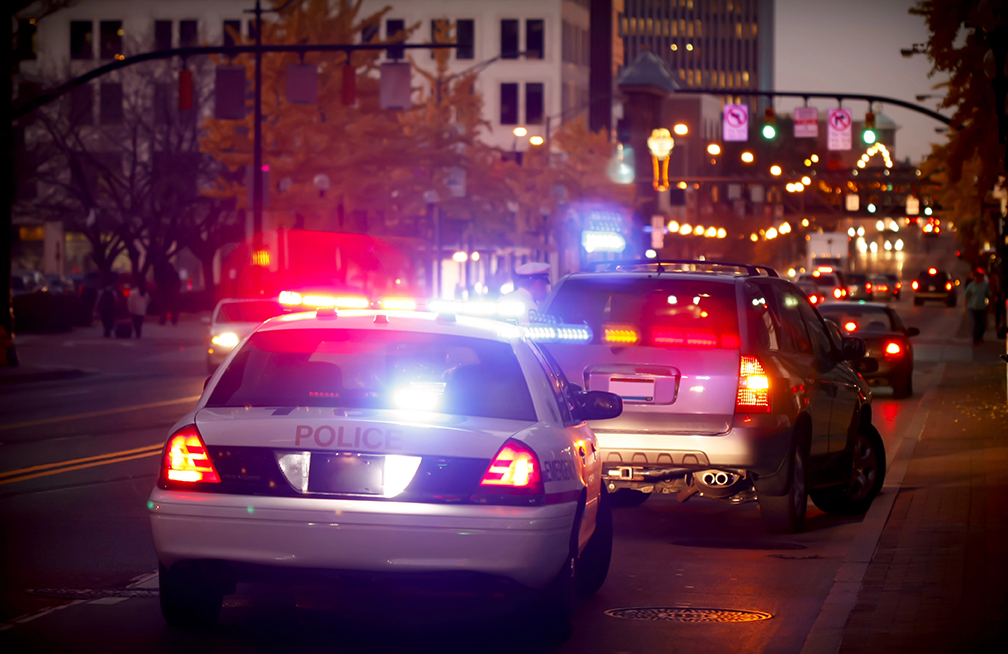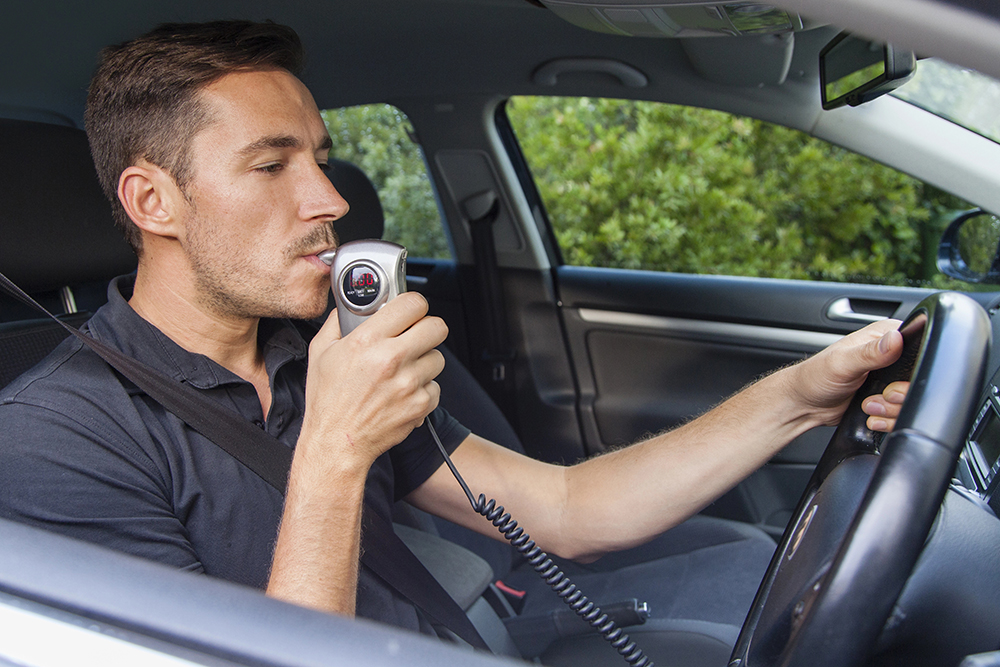Impaired Driving and DUI Lawyers in Calgary
Impaired driving is one of several criminal driving charges that can be filed against drivers in Calgary. It is also known as Driving Under the Influence (DUI) or Driving While Intoxicated (DWI), however, these terms are used more prominently in the United States.
Impaired driving is a serious criminal offence. It is illegal to operate a motor vehicle while your ability is impaired by alcohol, drugs, or a combination of both. The offence includes driving with a blood alcohol concentration (BAC) that equals or exceeds 80 milligrams of alcohol per 100 millilitres of blood (0.08%) or having a prohibited level of drugs in your system.
If you are facing impaired driving charges, you need a criminal defence lawyer in Calgary to look at your case as soon as possible. A conviction on impaired driving charges can carry serious penalties including expensive fines and jail time.
Strategic Criminal Defence is a top Google-rated criminal defence firm in Calgary, with over 500 5-star reviews. Our firm, and our experienced legal team, have defended clients in over 10,000 criminal cases. Leveraging our extensive network of lawyers and decades of experience, we craft defence strategies to help those accused of impaired driving beat the charge.
The lawyers at Strategic Criminal Defence are both highly experienced and dedicated to defending your rights and future in the face of these charges. Contact a Calgary impaired driving lawyer today by calling (403) 719-6410.
The content of this article is specific to criminal charges for impaired driving. If you have received an Immediate Roadside Sanction, visit this resource.
An Experienced Criminal Defence Firm

Our lawyers are guided by core values of service, results, integrity, teamwork, drive, and strategy. We share our collective experience, resources, and passion to help people and look for opportunities to add value to our clients through strategic thinking and creative solutions.
Key Takeaways
- Impaired driving is a serious criminal offence that will leave one with a criminal record and can result in jail time, even for first-time offenders
- Minimum penalties include $1,000 fine and a driving prohibition, but consequences can be much more severe
- Maximum jail sentences are:
- Summary conviction: 2 years
- Indictment: up to 10 years
- Common bail conditions include:
- No driving
- No alcohol consumption
- No visiting bars or liquor stores
- Regular check-ins with police
- Despite being a serious charge, impaired driving cases can be successfully defended with proper legal representation
- Scientific evidence like breath tests can be challenged in court if proper procedures were not followed

How can an impaired driving lawyer in Calgary help?
An impaired driving lawyer on our team can provide crucial help throughout your case, starting even before charges are laid. They can offer immediate advice about your rights during roadside stops and breath testing, helping you understand what you must and must not say to police to avoid self-incrimination.
Our team will gather important evidence like police reports, breath test records, and video footage from police vehicles or nearby security cameras. Our lawyers can also identify potential problems with how tests were conducted or how evidence was collected. When necessary, they can bring in expert witnesses to challenge the reliability of breath testing equipment or question police procedures.
Most importantly, our impaired driving lawyers know how to navigate both the criminal justice system and administrative procedures with Alberta Transportation. They will represent you in court, negotiate with prosecutors, and guide you through complex legal procedures. During trial, they can challenge evidence, cross-examine police officers, and present your defence effectively.
Impaired Driving Charge in the Criminal Code of Canada
Examples of Impaired Driving Charges
Here are some examples of what could lead to impaired driving charges in Calgary:
- After leaving a restaurant where you had several drinks with dinner, you are stopped at a police check stop. The officer smells alcohol and asks you to provide a breath sample. Your reading shows a blood alcohol level of 0.11, which is above the legal limit of 0.08.
- You take prescription medication that makes you drowsy but decide to drive anyway. Other drivers notice your car swerving between lanes and call police. When stopped, you fail the standardized field sobriety tests, leading to a drug-impaired driving charge.
- After smoking cannabis at a friend’s house, you drive home. A police officer pulls you over for running a red light and notices signs of impairment. Drug testing reveals THC levels above the legal limit, resulting in a cannabis-impaired driving charge.
Impaired Driving Charge Defences
When facing an impaired driving charge, there are several legal defences that might be available depending on the specific circumstances of your case. While impaired driving is a serious offence, police and prosecutors must follow strict procedures and respect your rights throughout the investigation and arrest process. Understanding these potential defences is important, though their effectiveness depends on the specific details of your case and should be discussed with our team.
- Charter Rights Violations: A defence based on Charter rights violations focuses on whether police respected your constitutional rights during the investigation and arrest. For example, if officers failed to inform you of your right to speak with a lawyer, conducted an unlawful traffic stop without reasonable suspicion, or denied your right to contact legal counsel promptly, this could lead to evidence being excluded from court. Police must also provide clear language interpretation if needed. If these fundamental rights were violated, your Strategic Criminal Defence lawyer could argue that the evidence obtained should not be admissible in court, potentially weakening or dismissing the case against you.
- Technical Defences Related to Testing: This defence challenges the reliability and accuracy of breath or blood testing procedures. It may include arguments about whether the testing equipment was properly maintained and calibrated, if the technician was qualified to operate it, or if the mandatory observation periods were followed. Additionally, if there were delays in conducting the test beyond the legal time limit, or if proper procedures were not followed in collecting and handling blood samples, these technical issues could cast doubt on the accuracy of the results and potentially lead to evidence being excluded.

What are the consequences of an impaired driving charge?
Impaired driving is a serious criminal offence in Canada that can result in severe penalties. It is classified as a hybrid offence, which means the Crown prosecutor can choose to treat it as either a summary or indictable offence, depending on the circumstances and severity of the case.
For a first-time impaired driving offence, the minimum penalties include a mandatory fine of $1,000 and a driving prohibition of at least one year. However, if the Crown proceeds by indictment, the maximum fine can be much higher, and judges have discretion in setting the amount based on factors like income and severity of the offence.
Jail sentences for impaired driving vary significantly. While first-time offenders might avoid jail time, they could face up to two years if prosecuted summarily, or up to 10 years if prosecuted by indictment. Mandatory minimum jail sentences apply for repeat offenders: 30 days for a second offence and 120 days for subsequent offences.
The severity of punishment typically increases if the impaired driving resulted in bodily harm or death. In these cases, the maximum penalties are much more serious, with imprisonment of up to 14 years for causing bodily harm and up to life imprisonment for causing death.
There are also additional potential penalties like mandatory education programs, vehicle impoundment, installation of ignition interlock devices, or increased insurance rates.
The criminal record that results from an impaired driving conviction can also affect employment opportunities and travel abilities.
Impaired Driving Charge Investigation
When Calgary police investigate suspected impaired driving, they follow a specific sequence of steps to gather evidence. The investigation typically begins when officers notice signs of impaired driving, such as swerving, unusual speed changes, or traffic violations, or when conducting routine checkpoints.
If officers have reasonable suspicion of impairment, they may request the driver to perform standardized field sobriety tests (SFSTs). Officers also observe physical signs like slurred speech, bloodshot eyes, or the smell of alcohol.
If these initial tests suggest impairment, officers may demand a roadside breath sample using an approved screening device. Based on these results, police can arrest the driver and transport them to the police station for more accurate breath testing using an approved instrument.
Throughout this process, officers document their observations, including the driver’s behaviour, test results, and any statements made. They must also inform drivers of their right to speak with a lawyer and provide this opportunity before conducting breath tests at the station.

Bail Conditions for Impaired Driving Charges
When someone is charged with impaired driving, they usually face specific bail conditions that they must follow while waiting for their court date.
One of the most common bail conditions is a driving restriction. The court may completely prohibit the accused from driving any motor vehicle, or they might allow driving only at certain times or for specific purposes like work. Some people may only be allowed to drive vehicles equipped with an ignition interlock device, which tests for alcohol before the car will start.
Another typical condition is staying away from alcohol and drugs. The court often orders people charged with impaired driving to not drink alcohol or use drugs. They may also have to stay out of places where alcohol is sold, like bars and liquor stores.
Regular check-ins with police or a bail supervisor are usually required. The accused person might need to visit a police station or meet with a supervisor weekly or monthly to prove they are following their bail conditions.
Some people might need to attend alcohol education programs or counselling as part of their bail conditions.
Breaching these bail conditions can result in additional charges and might lead to being held in jail until the court date. It is important for anyone charged with impaired driving to fully understand and follow all their bail conditions.
Frequently Asked Questions
What happens immediately after I’m arrested for impaired driving?
After arrest, you’ll be taken to the police station for breath testing or drug screening. The police will read you your rights and ask for breath samples or other tests. They’ll process your paperwork, take your fingerprints and photo, and possibly hold you until you’re sober. You might be released with paperwork for a future court date, or you may need to attend a bail hearing. Your license will typically be suspended immediately, and your vehicle might be impounded.
What are the possible penalties if I’m convicted?
Penalties typically include fines, license suspension, and possible jail time. First-time offenders usually face fines ranging from $1,000 to $2,000 and might get probation instead of jail time. Your insurance rates will also increase significantly. Repeat offenders face steeper fines, longer license suspensions, and mandatory jail time. You’ll also have a criminal record, which can affect employment and travel.
How will this affect my job and ability to travel?
An impaired driving conviction can significantly impact your employment and travel. If your job requires driving or a clean criminal record, you might face employment challenges. Some employers conduct background checks, and a conviction could affect future job opportunities. For travel, many countries (especially the United States) may deny entry to people with impaired driving convictions. You might need special permission or wait several years before being allowed to enter certain countries. It is important to discuss these implications with our experienced team of impaired driving lawyers.
Related Offences
- Dangerous operation: This charge relates to those who are accused of operating a vehicle or conveyance in an unsafe manner in the circumstances.
- Operation causing bodily harm: This charge relates to those whoa re accused of operating a vehicle or conveyance in a manner that is dangerous to the public and resulted in bodily harm to another.
- Failure or refusal to comply with demand: This charge relates to those who are accused of refusing to comply with a demand made under s. 320.27 or 320.28 of the Criminal Code, even though they have no reasonable excuse to do so.





